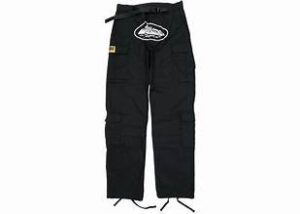When it comes to outdoor adventures, comfort doesn’t have to be compromised. Whether you’re camping, enjoying a festival, or even tailgating, a tent air conditioner can revolutionize your experience. But how exactly does a tent air conditioner work, and what should you consider when choosing the right one for your needs?
In this detailed guide, we will explore everything you need to know about tent air conditioners, including how they work, the key features to look for, and the top options on the market. From understanding their benefits to selecting the right model for your specific requirements, this guide is here to make your decision-making process easy and informed.
How Does a Tent Air Conditioner Work?
Tent air conditioners operate much like any other portable air conditioning unit, but they are specifically designed to function in an outdoor environment. These units provide a cooling solution for large, enclosed spaces like tents, RVs, and cabins.
A tent air conditioner typically works by drawing in warm air from the tent, cooling it via a refrigeration cycle, and then pushing the cooled air back into the tent to maintain a comfortable temperature. In addition, they usually feature a venting system that releases the hot air outside, ensuring that the cooling process doesn’t create more heat inside.
Key Features of Tent Air Conditioners
Before you make your purchase, understanding the essential features of tent air conditioners can help you choose the most suitable unit for your needs. Here are the key features to consider:
-
Cooling Capacity (BTU): The cooling power of the unit, measured in British Thermal Units (BTU), determines how well the unit will cool your tent. A higher BTU value means a larger area can be cooled.
-
Energy Efficiency: Look for an air conditioner with an Energy Efficiency Ratio (EER) rating. The higher the EER, the less energy the unit uses to provide the same amount of cooling.
-
Portability: Since tent air conditioners are designed for temporary use, portability is crucial. Choose a model that is easy to transport and set up.
-
Noise Level: Tent air conditioners can be noisy, which can be disruptive, especially during sleep. Look for a quieter model with a decibel level you’re comfortable with.
-
Installation and Setup: Some tent air conditioners are designed to be easily installed, while others might require more complex setup. Be sure to check how easy it is to install and operate the unit.
-
Power Source: Most tent air conditioners run on electricity, but there are also models designed to work with battery packs or generators. Consider your power options based on your outdoor environment.
Benefits of Using a Tent Air Conditioner
Using a tent air conditioner has several advantages, especially for those who prioritize comfort in outdoor settings. Here’s how a tent air conditioner can make your outdoor experience better:
-
Enhanced Comfort: A tent air conditioner ensures that you’re not subjected to sweltering heat while camping, even in the hottest climates.
-
Better Sleep: With a cool and comfortable tent, you’ll sleep better, which is essential for outdoor adventures.
-
Extended Camping Season: With a tent air conditioner, you can enjoy camping or outdoor events during warmer months without the discomfort of high temperatures.
-
Health Benefits: Staying cool in hot weather prevents heat exhaustion and other heat-related illnesses, which can be especially important in extreme outdoor conditions.
-
Humidity Control: Many models not only cool the air but also dehumidify it, making the air inside your tent less sticky and more breathable.
Tent Air Conditioner Types
There are several types of tent air conditioners available, each suited for different needs and environments. Let’s break them down:
1. Portable Air Conditioners
These are the most common type of tent air conditioners. They are self-contained units that can be easily moved in and out of the tent. They come with an exhaust hose that vents hot air outside the tent. They are generally more affordable and accessible for occasional campers.
2. Evaporative Coolers
Also known as swamp coolers, these units are more energy-efficient than traditional air conditioners. They work by evaporating water to cool the air, making them ideal for dry climates. However, they are less effective in humid areas.
3. Window-Mounted Air Conditioners
If you have a large tent or structure, you may opt for a window-mounted AC unit. These units are installed through a window or opening in the tent and work similarly to home window air conditioners. While they may require more setup, they tend to be more powerful and efficient.
What to Look for When Buying a Tent Air Conditioner
Choosing the best tent air conditioner requires a bit of research. Here are some critical factors to consider when making your purchase:
Size of Your Tent
Before buying, measure your tent’s size and calculate the necessary cooling capacity. The size of the unit should correspond with the square footage of your tent. If you have a larger tent, you will need a more powerful air conditioner to cool the space efficiently.
Climate and Weather Conditions
Consider the weather conditions you will be camping in. If you’re in a humid area, an air conditioner with a built-in dehumidifier will help keep the air comfortable. For dry areas, an evaporative cooler may suffice.
Power Requirements
If you’re camping off the grid, you need to make sure you have enough power to run your air conditioner. Some models require a generator or battery, while others can be powered via a standard outlet. Be sure to consider your power source and its limitations.
Budget
Tent air conditioners come in a wide range of prices, from affordable, small portable units to high-end models with multiple features. Set a budget that aligns with your needs and make sure you choose a unit that offers the best value for your investment.
Top Tent Air Conditioners on the Market
There are many options available in the market, each offering different features and levels of performance. While we can’t name all the top brands here, you should keep an eye out for well-established names in the industry known for their reliable and efficient products.
Look for customer reviews, as well, to gauge how a particular unit performs in real-world conditions. Be sure to check out expert opinions from outdoor gear specialists for additional insights on the best models for your specific needs.
FAQs About Tent Air Conditioners
Q: How do I choose the right tent air conditioner for my needs? A: The right tent air conditioner depends on your tent size, climate, and power sources. Consider factors such as cooling capacity (BTU), energy efficiency, and portability when making your decision.
Q: Can a tent air conditioner run on battery power? A: Yes, some portable tent air conditioners are designed to run on batteries or generators. Make sure to choose one that matches your power requirements.
Q: How long does it take to set up a tent air conditioner? A: Setup time can vary depending on the model. Portable air conditioners are typically quick to install, while window-mounted or larger units may take longer.
Q: Are tent air conditioners loud? A: Noise levels vary depending on the model. Generally, portable units are the quietest, but noise levels are something to consider when camping in quiet, natural settings.
Q: Can a tent air conditioner be used for other outdoor activities? A: Yes! Tent air conditioners can be used for any outdoor activity where you need a temporary cooling solution, including tailgating, festivals, and outdoor workshops.





